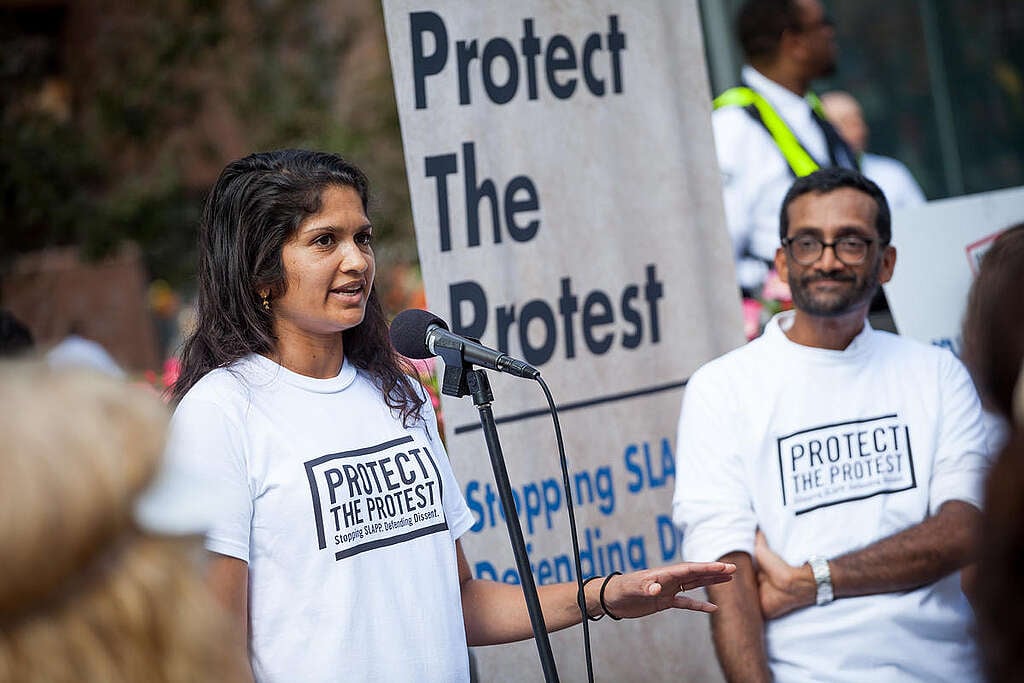
The right to dissent
Strategic Lawsuits Against Public Participation (SLAPPs) are used by corporations to silence peaceful dissent and suppress criticism.
Big Oil is attacking our rights to protest and dissent
SLAPPs are a tactic used by Big Oil and other corporate interests to impede the right to protest. Big Oil and its supporters continue to use SLAPPs against individuals and organizations in a concerted effort to shrink civic space and raise the cost of protesting, making it increasingly risky for activists and BIPOC communities to oppose pipelines and other projects that threaten their communities.
One example is the $300 million lawsuit filed by Energy Transfer, the company behind the Dakota Access Pipeline (DAPL), which targets Greenpeace USA and others in a vindictive attempt to intimidate activists and obscure environmental harm. This baseless case against us goes to trial in February 2025.
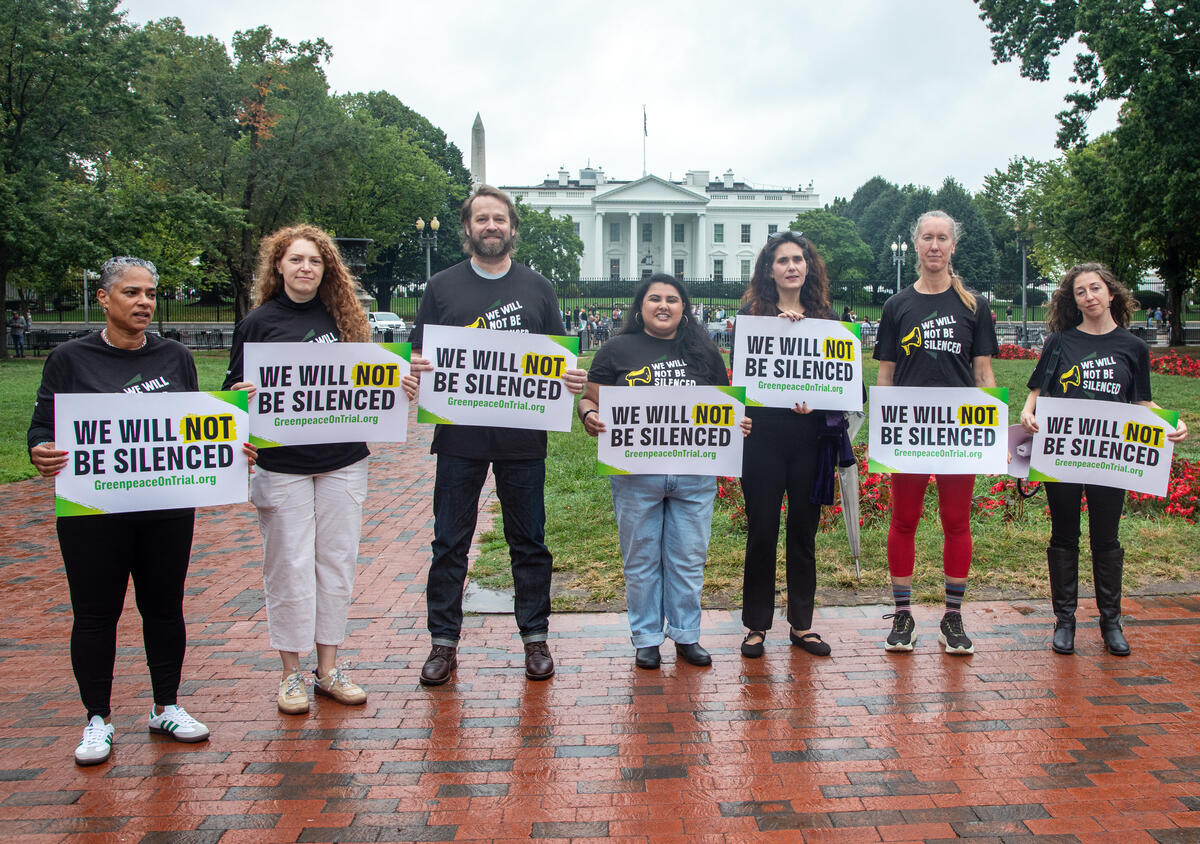
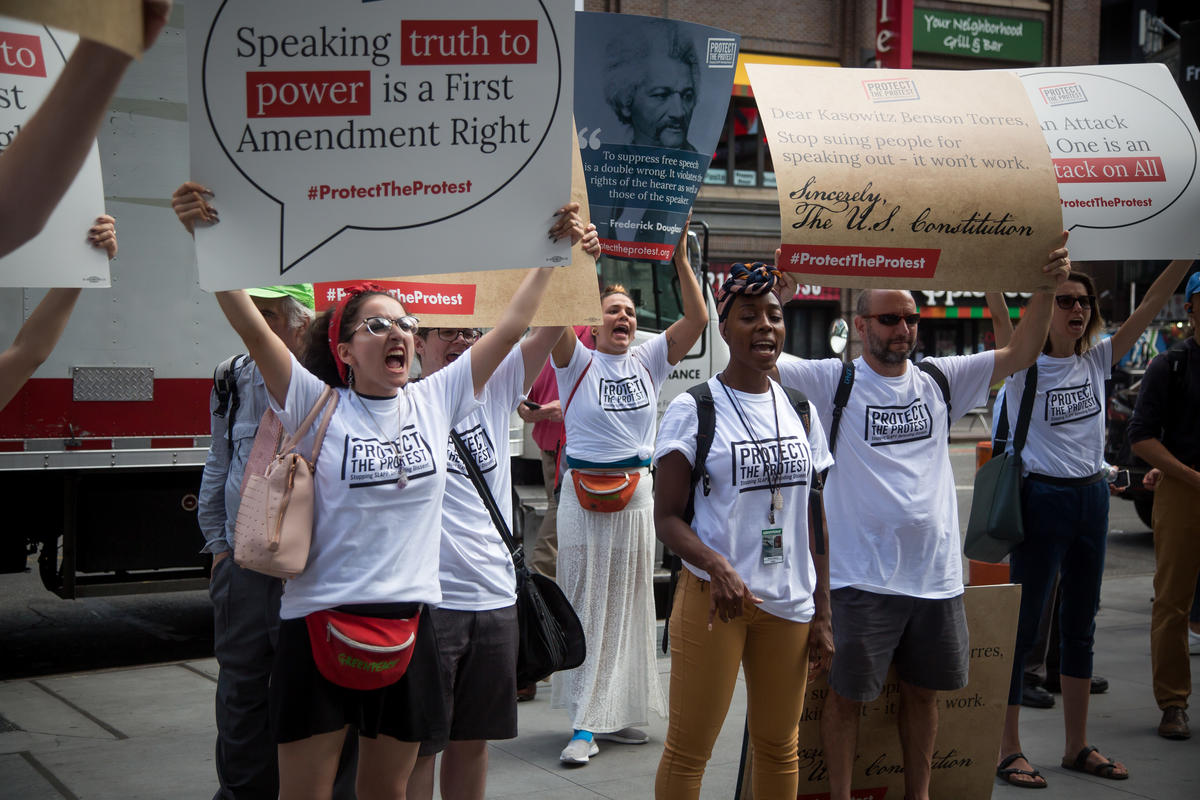
We believe a healthy democracy is essential for a healthy environment, which is why we fight for our right to peacefully protest for what’s best for people and the planet. Central to this fight is our conviction that free speech and peaceful dissent are fundamental pillars of democracy. However, these pillars face increasing attacks from various entities, including corporate polluters, who seek to undermine our ability to expose their wrongdoings through repressive tactics like SLAPPs.
In April 2023, for instance, the U.S. District Court for the Northern District of California dismissed a seven-year SLAPP lawsuit against Greenpeace USA and Greenpeace International by Resolute Forest Products. Despite such victories, Energy Transfer continues to drag Greenpeace USA through costly, resource-intensive litigation. Corporations have escalated their attacks by drawing on RICO (Racketeer Influenced and Corrupt Organizations Act) laws to demand triple damages in SLAPP suits. Violations of the RICO laws were alleged in both the Resolute Forest Products case and the lawsuit filed by Energy Transfer in federal court. Rather than succumbing to these intimidation tactics, Greenpeace USA successfully had the RICO claims dismissed in both cases. Since then, no new RICO/SLAPP cases have been filed against advocacy groups.
Protect the protest
In response, Greenpeace USA helped launch the Protect the Protest Task Force (PTP), a coalition of individuals and organizations working together to counter attempts to undermine democratic participation. Recognizing that not every individual or organization has the resources to fight SLAPP suits, we created a space to collectively work to end this threat. By engaging with democratic norms, we reinforce safeguards in both law and public opinion regarding the importance of democratic participation and the right to dissent.
Greenpeace USA has supported legislation at the local, state, and national levels to protect protesters from harmful lawsuits. In 2023, Representative Jamie Raskin introduced the SLAPP Protection Act, and Greenpeace USA is committed to enshrining protections for the First Amendment right to protest. It’s time to come together and demand our legislators protect the right to protest through Anti-SLAPP legislation.
Learn more about…
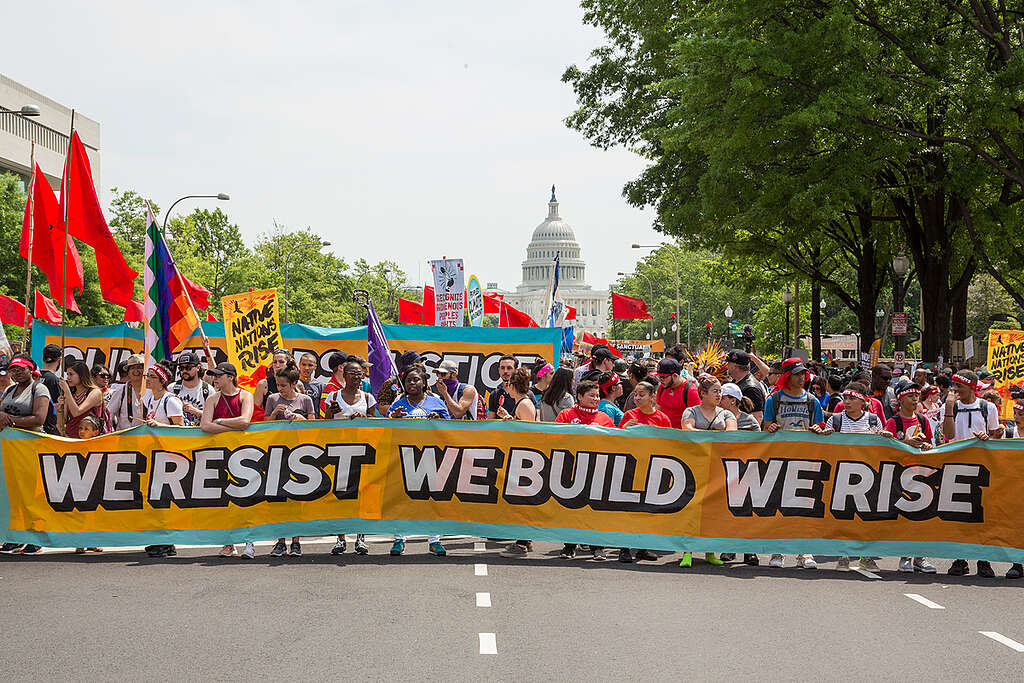
The right to protest

Freedom to vote
-
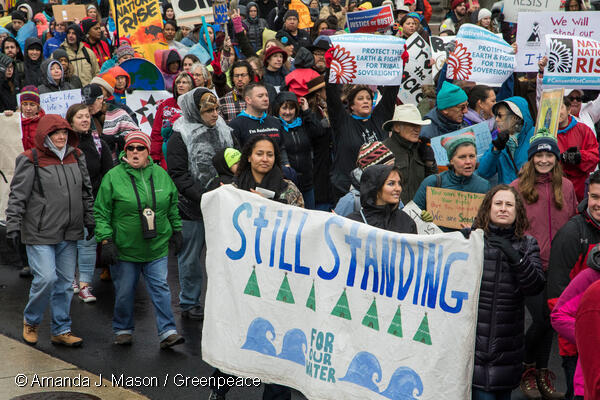
Dollars vs. Democracy 2023
Americans overwhelmingly support government action on the climate crisis. As a result, the fossil fuel industry has expanded its playbook…
-
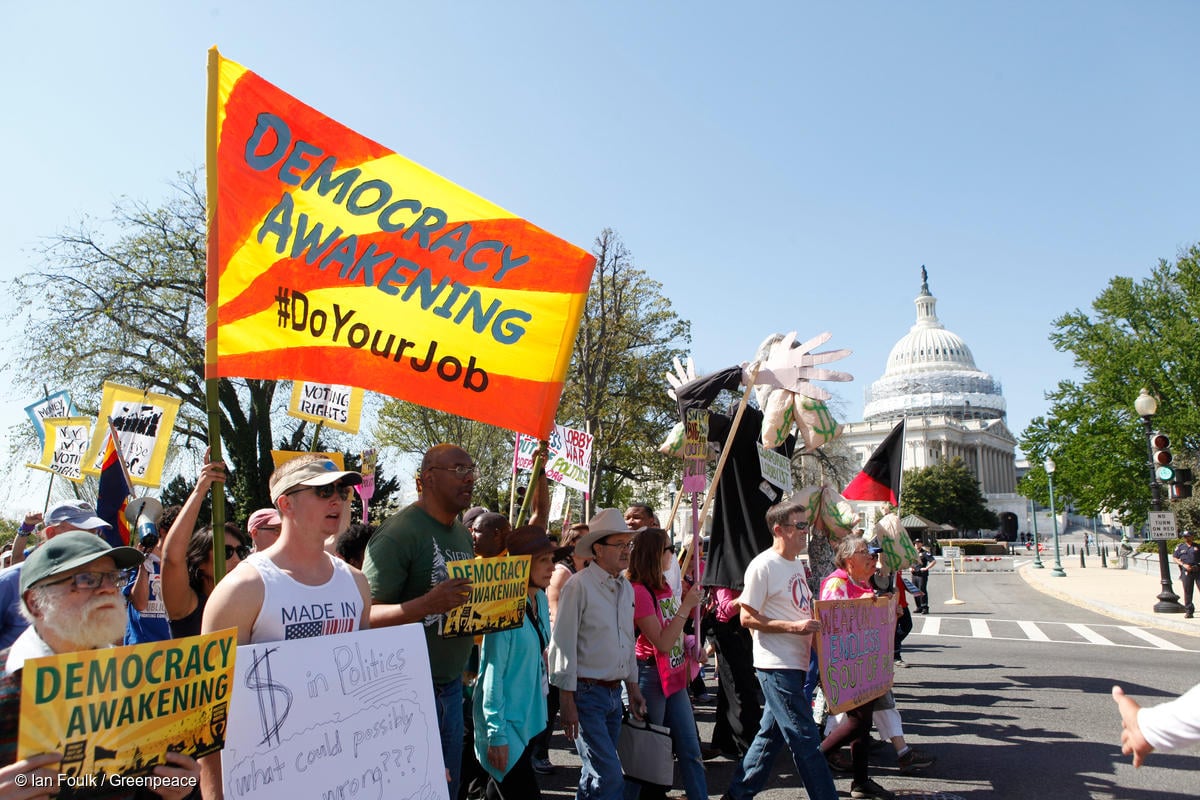
Greenpeace Report: Dollars vs. Democracy
A healthy democracy is a precondition for a healthy environment. When everyone’s vote counts and when everyone’s constitutionally-guaranteed right to peacefully protest…
-

Greenpeace Report: Contaminating the Courts
Corporations have increasingly begun to resurrect the legal strategy of expanding the concept of corporate personhood to argue that local, state, or federal environmental laws violate their constitutional rights. This trend isn’t totally new, but it has accelerated since the Supreme Court’s 2010 Citizens United v. FEC decision.
-
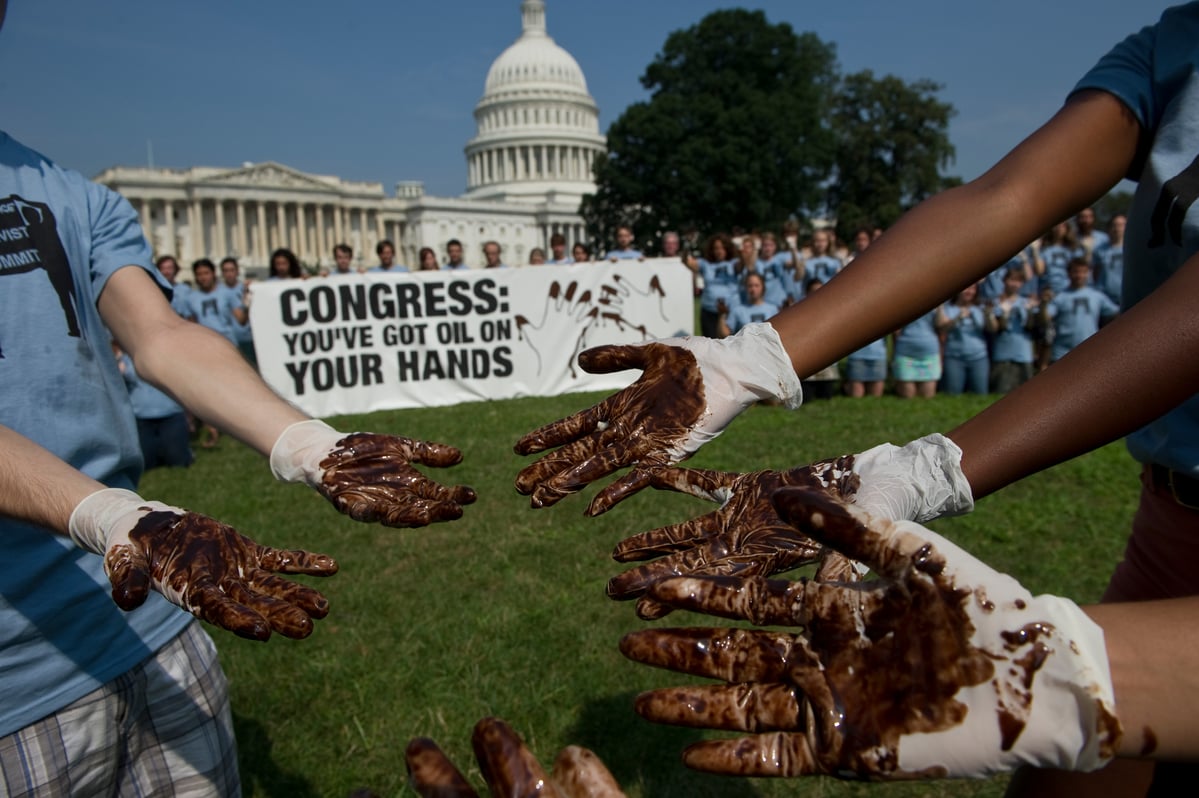
Polluting Democracy
The majority of the ancient US coal fleet has not installed easily available technology that could reduce mercury pollution by 90%. Coal combustion is responsible for most US mercury pollution.…
